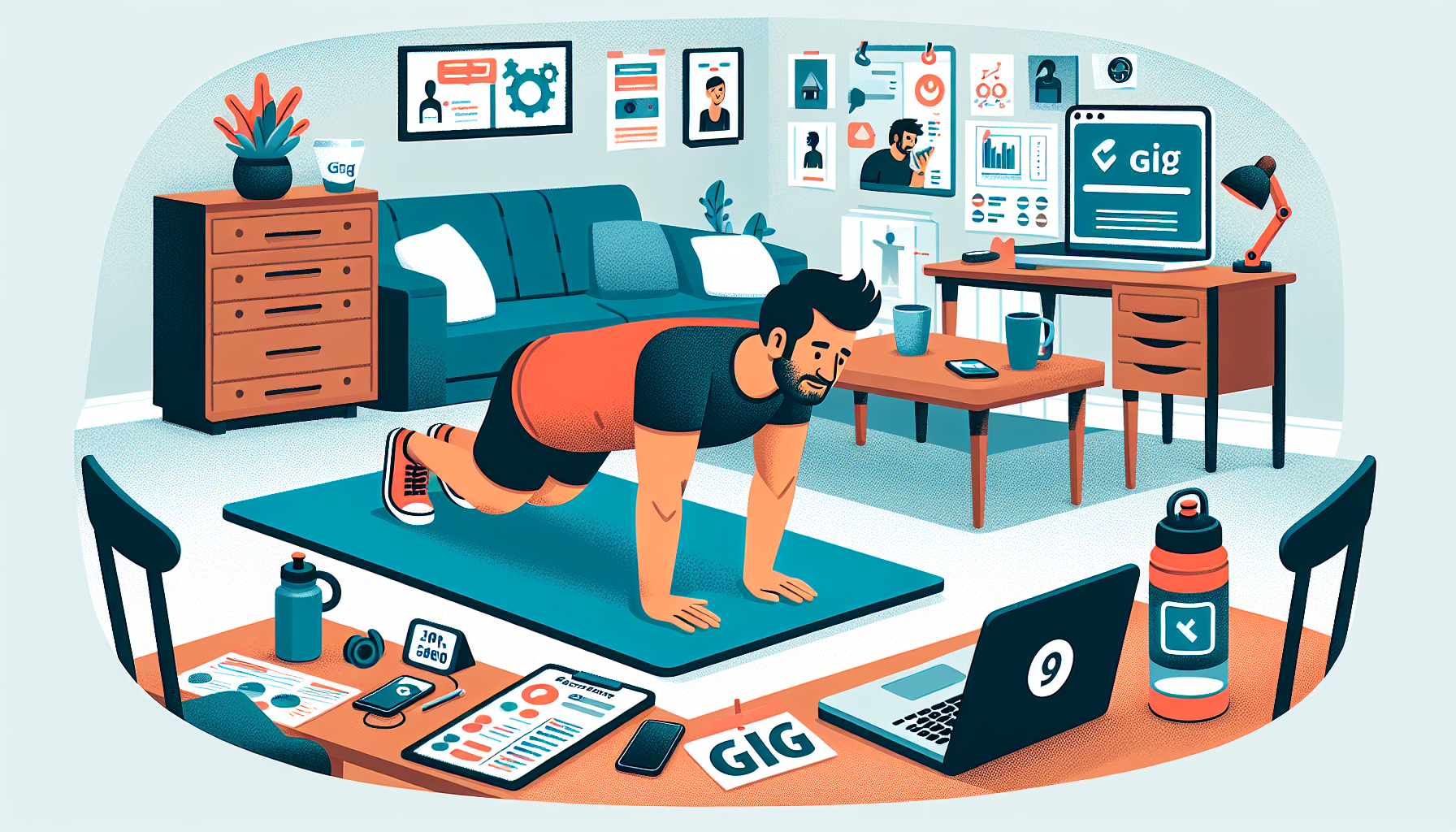Healthy Hustle: Wellness Strategies for the Gig Economy

In the ever-evolving landscape of the gig economy, maintaining a healthy work-life balance can be a challenge. With more than a third of the American workforce participating in gig work, it’s crucial to prioritize health and wellness. So, if you want to know how to stay fit, happy, and productive in the gig economy you’re in the right place. We’ll explore practical tips and strategies that can help you navigate the unique challenges of gig work, from managing stress to maintaining physical health. So, whether you’re a seasoned gig worker or just starting your journey, read on to discover how you can thrive in the gig economy.
Embracing the Gig Economy
The gig economy has revolutionized the way people work and the kinds of jobs they pursue. With more than one-third of the American workforce participating in the gig economy, and projections suggesting that this number will exceed 50% by 2027, it’s clear that gig work is here to stay.
For many people, the appeal of gig work includes flexible scheduling around creative pursuits and family responsibilities. In fact, 4 in 5 gig workers share that they are happier than they would be in a traditional job. But with this freedom and flexibility comes the responsibility of managing your own health and wellness.
What are the Health Challenges of Gig Work?
Gig workers often lack employer-sponsored health insurance, facing the financial burden of securing their own coverage due to their self-employed status. This can lead to some opting to go uninsured, exposing them to potential high medical costs.
The unpredictable nature of gig work contributes to stress and mental health challenges, as income instability and working in isolation can lead to feelings of loneliness and depression.
Moreover, the long and irregular hours typical of gig work may result in chronic fatigue, poor sleep quality, and increased health risks. Gig workers should take proactive steps, such as securing health insurance and maintaining a healthy work-life balance. Policymakers and companies relying on gig workers must ensure access to necessary support and protections for the well-being of these workers.
Importance of Regular Exercise for Gig Workers
Regular exercise is crucial for gig workers for various reasons. It effectively manages stress, a prevalent issue due to income uncertainty and job insecurity. Exercise is a proven stress-reliever, reducing anxiety and enhancing mood.
Moreover, many gig workers, often desk-bound, face health risks like obesity and heart disease. Exercise mitigates these risks by improving cardiovascular health, aiding weight loss, and enhancing insulin sensitivity.
Additionally, it addresses irregular sleep patterns common among gig workers, promoting better sleep quality and regulating sleep cycles.
Furthermore, exercise boosts productivity and creativity by releasing endorphins, acting as natural mood lifters that improve mental clarity and focus. In essence, regular exercise is not just beneficial but essential for gig workers, aiding stress management, mitigating sedentary risks, improving sleep, and enhancing overall productivity. Prioritizing physical activity, no matter how busy the schedule, becomes paramount.
Nutrition Tips for On-the-Go Gig Workers
Gig workers, juggling a flexible and on-demand schedule, often grapple with limited time for nutrition. Despite the hustle, prioritizing a healthy diet remains paramount for sustained energy, focus, and overall well-being. Here are concise nutrition tips for on-the-go gig workers:
-
Plan Ahead: Prep meals in advance for busy days, portioning out healthy options for the week.
-
Healthy Snacks: Keep easily packable snacks like nuts, seeds, fruits, and veggies on hand for quick bites.
-
Stay Hydrated: Despite a hectic schedule, prioritize water intake to support health and control hunger.
-
Avoid Fast Food: Opt for nutritious alternatives like salads or wraps from grocery stores or health-focused eateries.
-
Mindful Eating: Take a few minutes to enjoy your meal without distractions, fostering mindful consumption and preventing overeating.
-
Balanced Diet: Include a variety of foods – fruits, vegetables, lean proteins, and whole grains – to ensure a broad spectrum of nutrients.
-
Supplements: If dietary gaps persist, consult a healthcare professional before considering multivitamins or supplements.
Remember, healthy eating is not just about the foods consumed but also about cultivating mindful eating habits. Even amid a hectic gig schedule, carving out time for nutrition is essential.
The Future of the Gig Economy
As the gig economy continues to evolve, it’s opening up new opportunities for both professionals and customers. It has empowered skilled workers to take control of their careers, provided customers with more options and convenience, and fostered a competitive landscape that drives quality and innovation.
So, thriving in the gig economy requires a proactive approach to health and wellness. By understanding the unique challenges and opportunities of gig work, you can make informed decisions that support your well-being and productivity. Remember, your health is your wealth – so make it a priority as you navigate your journey in the gig economy.






